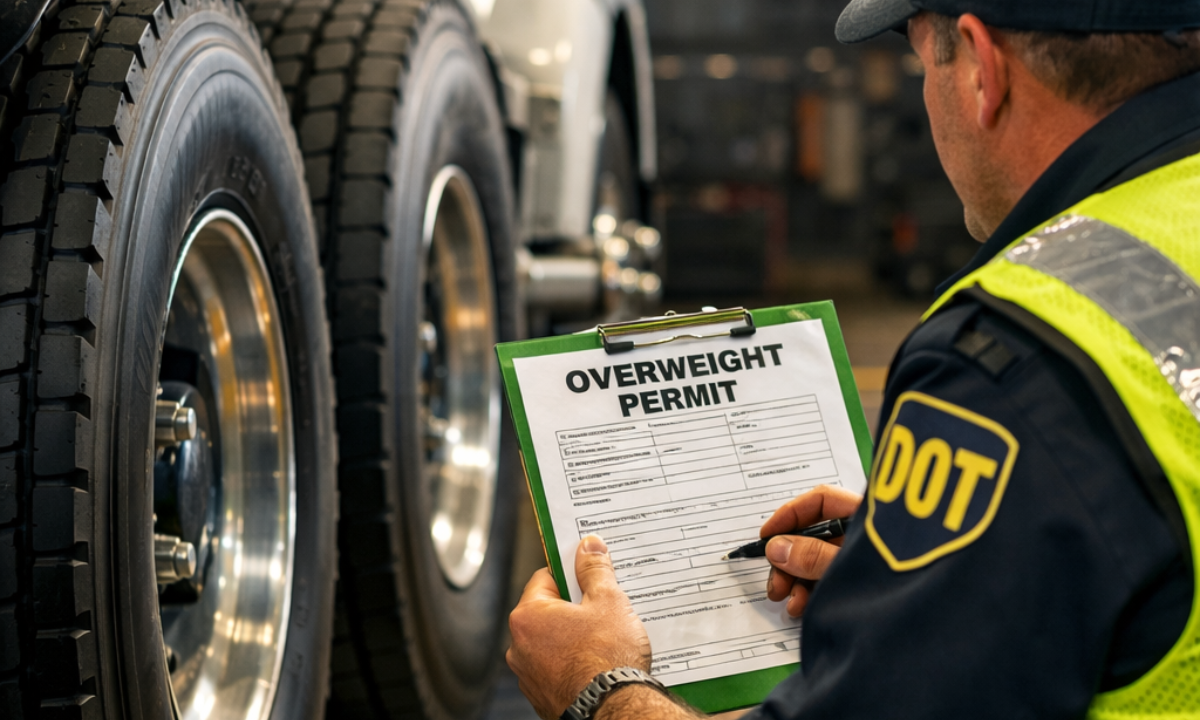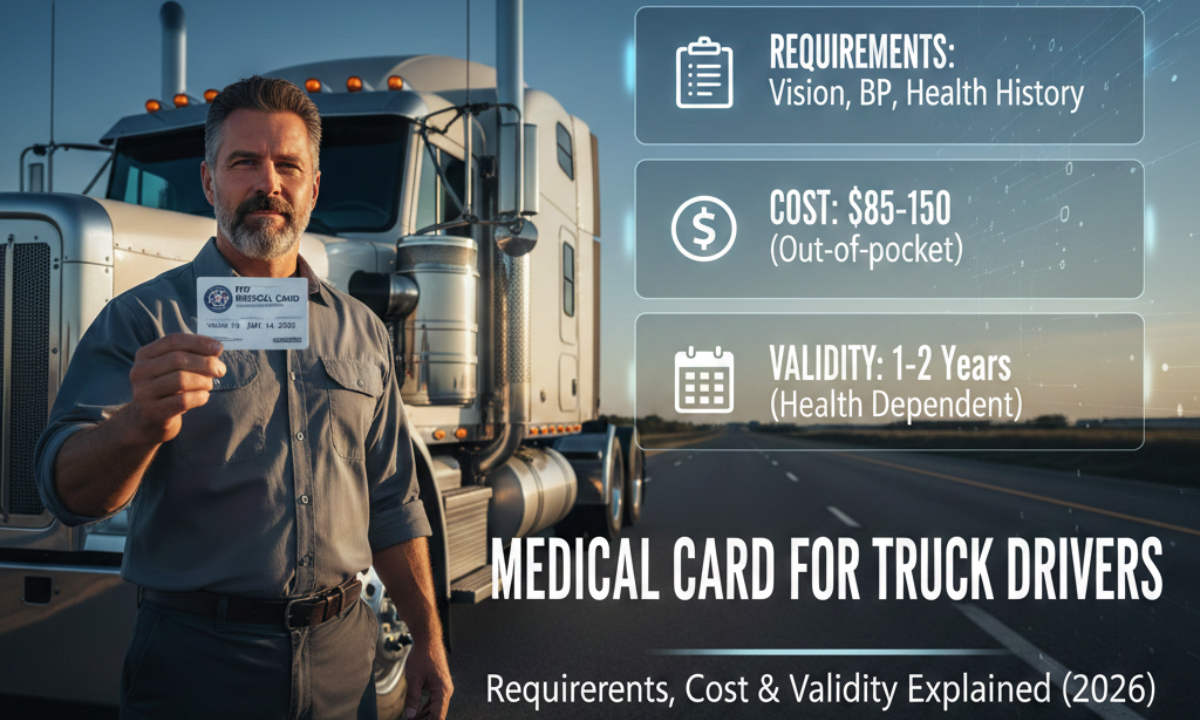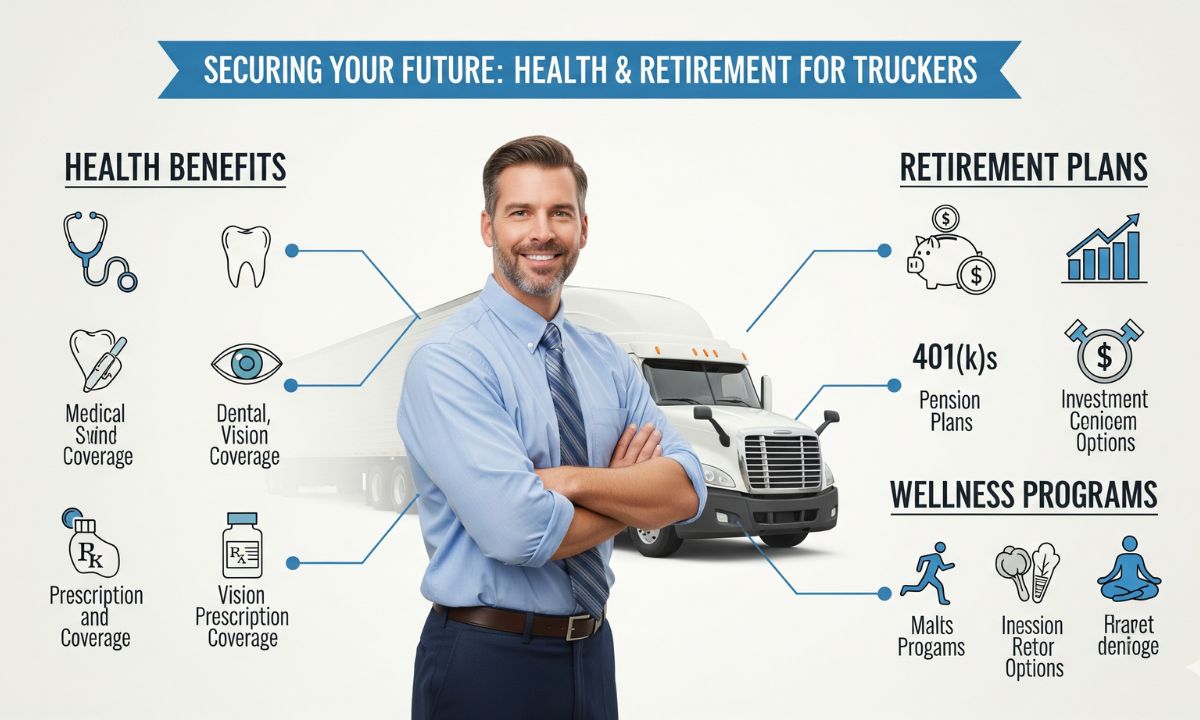What kind of health benefits and retirement plans do trucking companies offer?
Health Benefits and Retirement Plans in the Trucking Industry
The completeness of health benefits and retirement plans being offered to drivers is as much a consideration as pay rates and mileage compensation. Because of the nature of long-haul trucking, drivers are faced with long hours, little movement, and physical stress, making the availability of full health coverage and financial planning a very critical factor when weighing a career choice.
Health Insurance Options Offered by Trucking Companies
Most medium and large carriers offer drivers group health benefits. Each employer may have a different combination of specific benefits, but the following are the common inclusions:
- Medical coverage: This assists with doctor visits, hospitalization, preventive care, and emergency services.
- Dental and vision insurance: These benefits enhance oral health and eye-care services often excluded from basic plans.
- Prescription drug coverage: Drivers incur expenses on drugs for chronic conditions with heavy physical stress imparted from trucking.
- Telemedicine services: Online consultations now available to many drivers on the road.
- Preventive care programs: Some employers include wellness screening, vaccination, and health coaching programs aimed at encouraging driver wellbeing.
Companies that have an elaborate healthcare benefit sustain a higher retention for drivers than turnover.
Medical Wellness and Other Benefits
Good health impacts productivity, therefore many trucking companies have come up with wellness activities:
- Gym and fitness reimbursements: Helps drivers stay active while on the road.
- Mental health assistance: Employee Assistance Programs (EAP) and counseling to deal with stress and isolation.
- Occupational injury coverage: Programs that secure the driver against financial loss due to injury at work.
- Health savings accounts (HSAs) and flexible spending accounts (FSAs): Options for drivers to keep aside money before tax for medical purposes.
These additional benefits show that companies care about emotional resilience and quality of life in addition to physical health.
Retirement Plans for Truck Drivers
Retirement arrangements are another component of driver compensation packages. Many carriers offer:
- 401(k) plans: Most common retirement benefits with a company match contribution of 3% to 6%.
- Profit-sharing plans: Some companies share some percentage of annual profit with employees in their retirement accounts.
- Pension plans: Rarely exist in driving, with some unionized or established carriers still offering them.
- Roth 401(k) options: Allowing drivers to contribute post-tax income for tax-free withdrawals in retirement.
Strong retirement offerings from hiring companies give their drivers financial security, especially in an environment where schedules are demanding, and turnover is high.
Life Insurance and Disability Benefits
Under health-care benefits and retirement programs, life insurance and many trucking companies extend disability benefits such as:
- Basic life insurance policies, mostly funded by the employer.
- Supplement life insurance, which permits the drivers to add on to the level of coverage they have for their families.
- Short- and long-term disability insurance would cover drivers if they can no longer work due to illness or injury.
These benefit programs confer stability on a driver- as well as the driver’s family- being faced with unforeseen problems.
Differences Between Large Carriers and Small Carriers
- Usually, the larger national carriers can boast of solid health insurance, retirement plans, and wellness perks, even if the cost-sharing is high.
- Smaller regional carriers may offer slightly less, but they sometimes cover a larger portion of the premiums in competition.
- Owner-operators mostly go for private insurance and set up independent retirement accounts, which may end up being costlier, albeit more flexible.
Knowing these differentials helps drivers know what company type suits their career and life goals the most.
The Importance of Comparing Benefit Packages
Drivers’ total income is made up of pay-per-mile or per-load compensation as just one component. Drivers are encouraged to weigh:
- Premiums versus coverage.
- Retirement accounts contributions by the employer.
- Any fun extras such as wellness programs, mental support, and telemedicine.
- Eligibility criteria may mean benefits differ for new drivers, experienced drivers, or part-timers.
Balancing competitive pay and strong benefits gives long-term perspective regardless of short-term incomes.
Industry Trends in Health and Retirement Benefits
The trucking industry is changing as carriers wake up to the need to support driver longevity and wellness. Present trends are:
- Expansion of mental health resources in addressing burnout and stress.
- Flexible benefits that meet different driver’s needs.
- Concentration on retirement readiness programs to help drivers prepare for financial security after their trucking careers.
- Partnerships with wellness providers and clinics located near hub cities of trucking.
These trends mean that companies are changing their benefits to attract and keep the best talents in a highly contested market.
Disclaimer: The information provided in this blog post is for general informational purposes only. While we strive to keep the content accurate and up to date, we do not guarantee its completeness, reliability, or accuracy. Any actions you take based on this information are strictly at your own risk. We are not responsible for any losses, damages, or inconveniences that may arise from the use of this blog.












